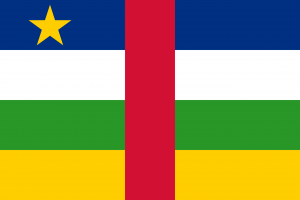Language/Sango/Grammar/Plurals
Hi Sango learners! 😊
In this lesson, we will learn about plurals in Sango. Plurals refer to more than one person, animal, thing, or concept. Let's begin!
Take some time to dive into these other pages after completing this lesson: Pronouns, How to Use Be & Adjectives.
Introduction[edit | edit source]
In Sango, plurals can be formed in different ways. The most common way is by adding the suffix -ti to the singular form of a noun. However, there are some irregular plural forms that do not follow this rule. We will learn them later in this lesson.
Let's see some examples:
| Sango | Pronunciation | English |
|---|---|---|
| moto | /mɔtɔ/ | car |
| mototi | /mɔtɔti/ | cars |
| sama | /sama/ | fish |
| samati | /samati/ | fishes |
Notice how adding the suffix -ti to the singular form of the noun forms the plural form in Sango.
Regular Plurals[edit | edit source]
In Sango, the regular plural form of a noun is formed by adding the suffix -ti to the singular form of the noun. Most countable nouns follow this rule. Here are some examples:
| Sango | Pronunciation | English |
|---|---|---|
| molia | /mɔlia/ | bird |
| molititi | /mɔlititi/ | birds |
| nana | /nana/ | child |
| nanati | /nanati/ | children |
| tondi | /tɔndi/ | book |
| tonditi | /tɔnditi/ | books |
Notice how the singular form of the nouns ends in a vowel, and the final vowel is replaced by -ti to form the plural form. If the singular form of the noun ends in a consonant, the suffix -ti is added directly. For example:
| Sango | Pronunciation | English |
|---|---|---|
| balɛ | /balɛ/ | house |
| balɛti | /balɛti/ | houses |
Similarly, if the noun ends in -a, the final -a is replaced by -ati. For instance:
| Sango | Pronunciation | English |
|---|---|---|
| baka | /baka/ | goat |
| bakati | /bakati/ | goats |
You can form the plural form of collective nouns by adding the suffix -to. For example:
| Sango | Pronunciation | English |
|---|---|---|
| mbola | /mbɔla/ | group |
| mbolato | /mbɔlato/ | groups |
Irregular Plurals[edit | edit source]
There are some irregular plural forms that do not follow the rule of adding the suffix -ti. Here are some examples:
| Sango | Pronunciation | English |
|---|---|---|
| zani | /zani/ | tooth |
| mazani | /mazani/ | teeth |
| ndjapa | /ndʒapa/ | table |
| ndjapala | /ndʒapala/ | tables |
| ndjama | /ndʒama/ | chicken |
| ndjama nana | /ndʒama nana/ | chickens (informal) |
| ndjama no | /ndʒama no/ | chickens (formal) |
Notice how the plural form of tooth (zani) is not formed by adding the suffix -ti to the singular form (zani). Instead, the singular form (zani) becomes plural (mazani) by changing the initial consonant to -m-.
Similarly, the plural form of table (ndjapa) is not formed by adding the suffix -ti to the singular form (ndjapa). Instead, the singular form (ndjapa) becomes plural (ndjapala) by adding an -l- in between.
Finally, there are some nouns that have different plural forms depending on the formality of the situation. For example, the plural form of chicken can be ndjama nana or ndjama no. Ndjama nana is the informal plural form, while ndjama no is the formal plural form.
Practice[edit | edit source]
Let's practice making plurals in Sango! Take the following singular nouns and make them plural.
- mila (cow)
- mama (mother)
- konda (house)
- moda (shirt)
- tomnyaka (shoe)
Once you have finished, find native speakers on Polyglot Club and ask them any questions you have. 💬
Dialogue[edit | edit source]
Here's a dialogue between two friends:
- Person 1: Ngayï e bandro! (Look at those monkeys!)
- Person 2: Ayï, bayïti bo mabandroti. (Yes, they are many monkeys.)
- Person 1: Mi na ndja kota? (Where do you live?)
- Person 2: Mi na ndja mejikoro. Nga koya? (I live in Mejikoro. And you?)
- Person 1: Mi na ndja Bengi. (I live in Bengi.)
Sources[edit | edit source]
➡ If you have any questions, please ask them in the comments section below.
➡ Feel free to edit this wiki page if you think it can be improved. 😎
Other Lessons[edit | edit source]
- Negation
- How to Use Be
- Adjectives
- Questions
- How to Use Have
- Conditional Mood
- Give your Opinion
- Pronouns
- Future Tense

